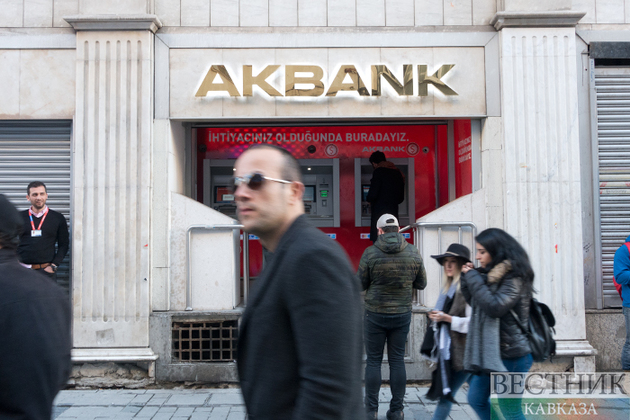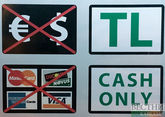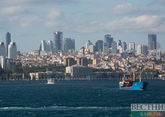Amid a sharp slide in the nation’s currency, the Turkish Central Bank announced it would intervene in markets and sell foreign exchange reserves Wednesday to stem volatility in the Turkish lira, Al-Monitor writes. After losing 28.3% of its value against the US dollar last month, the Turkish lira remained volatile Wednesday, therefore, the country’s central bank would directly intervene by selling foreign exchange reserves and conducting transactions on the Borsa Istanbul Derivates Market “due to unhealthy price formations in exchange rates.”
The intervention comes amid one of the deepest slides in the lira’s recent history as the currency makes and breaks record lows with increasing regularity. The lira briefly traded at a new low just shy of 14 per US dollar early Wednesday before rallying to about 12.50. Since then, the currency trimmed gains and was trading at about 13.30 per US dollar. The currency is down 45% against the greenback so far this year.
Recent slumps in the lira have closely followed a series of speeches by Turkish President Recep Tayyip Erdogan that high interest rates cause high inflation. The Turkish leader’s focus on keeping rates low and credit cheap saw the nation log 7.4% annual growth in its gross domestic product for the third quarter, the highest among G20 countries. Yet analysts warn such policies could prove unsustainable over time, threatening further depreciation in the lira as Turkey faces high inflation — just under 20% year-on-year in October, while the Istanbul Chamber of Commerce reported an annual 24.05% rise on retail prices in November.
“I think we know what Erdogan’s re-election strategy is, right?” Timothy Ash, an analyst at BlueBay Asset Management, said. “It’s low rates at any cost.” Ash said Erdogan hopes that cheap credit will accelerate economic growth and reverse his party’s slumping poll ratings ahead of general elections expected in mid-2023. Ash noted recent statements by central bank policymakers, as well as Erdogan himself, might also pave the way for a further interest rate cut in the next rate-setting meeting on Dec. 16. “It’s fiscal easing, and if anything goes wrong, it’s on foreigners,” Ash said. “In reality, he’s gambling big time with the Turkish economy.”
Over the last few weeks, the Turkish leader has frequently spoken about a new economic vision for Turkey driven by exported goods, manufactured at competitive costs with the aid of a weaker lira and low labor costs.Critics have noted many Turkish manufacturers rely on imported materials, which they acquire at increasingly unfavorable foreign exchange rates, and therefore will see their potential profits cut by pass-through costs.
Speaking in a televised interview Tuesday evening, Erdogan maintained low interest rates would eventually lead to lower inflation rates, saying he was not interested in “hot money flow.” The following day, the Turkish leader advised citizens not to panic while pledging to bring down inflation without the help of “global economic tutelage institutions” like the International Monetary Fund. “Turkey has now abandoned the monetary policy based on high interest rates that caused several developing countries to remain stagnant," Erdogan said Wednesday to lawmakers with his Justice and Development Party in the Turkish parliament. "Instead, we have transitioned to a growth strategy aiming for investment, employment, production and exports. Interest rates are an evil that make the rich richer and the poor poorer."
Opposition lawmakers responded Wednesday, blaming the government’s current policies for impoverishing Turkish citizens. The central bank’s foreign exchange sale Wednesday marks the first such move, officially, since 2014 when the bank sold off 3.15 billion USD. Between 2018 and 2019, the bank reportedly sold tens of billions of dollars in foreign currencies to prop up the lira before depleting reserves. According to data released Nov. 19, the central bank’s gross reserves were about $128.5 billion, with $60.5 billion in bank swap deals. Though Goldman Sachs estimates the country’s net reserves excluding borrowed funds are -$46.8 billion.
Ash, from BlueBay Asset Management, said Wednesday’s intervention may not inspire confidence in Turkish consumers, but it was necessary to temporarily stave off a deeper depreciation. “I think people began to think that it’s getting so desperate that the only solution is capital controls,” Ash said, referring to limits on foreign capital flows in an economy. “If you start to talk about capital controls, I think the next step is bank runs. This is going to end in tears.”
Turkey’s November inflation data will be published Friday, Dec. 3, with a Reuters survey forecasting an annual increase to 20.7%, the highest level since 2018.










